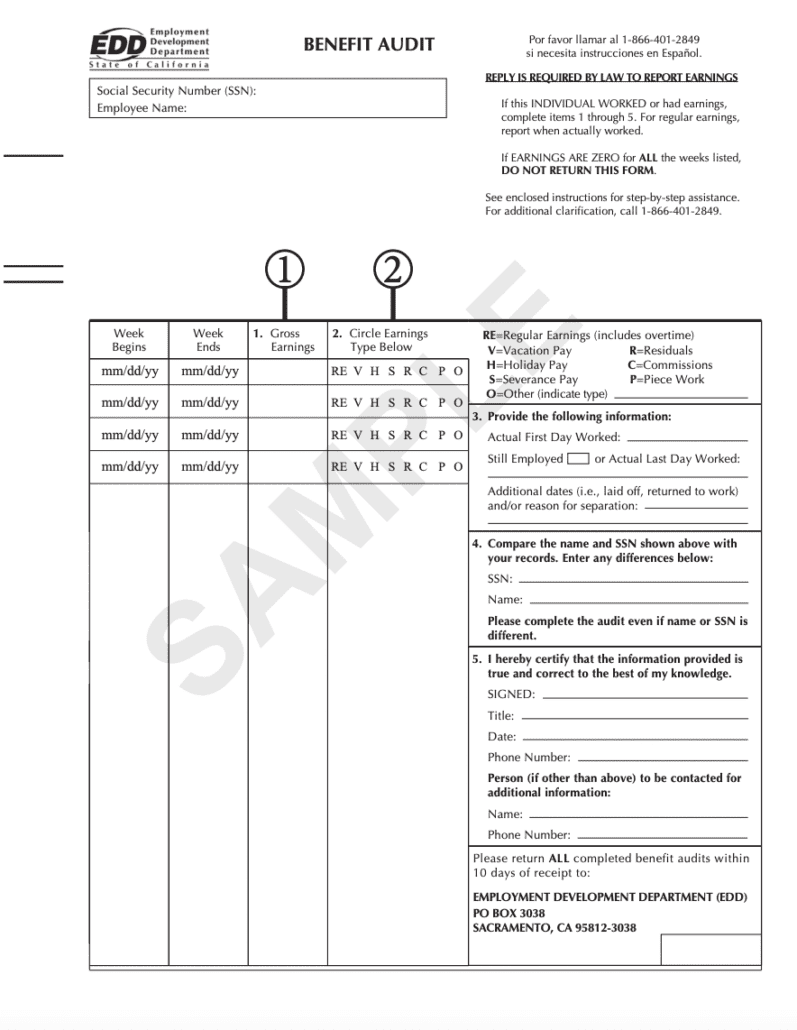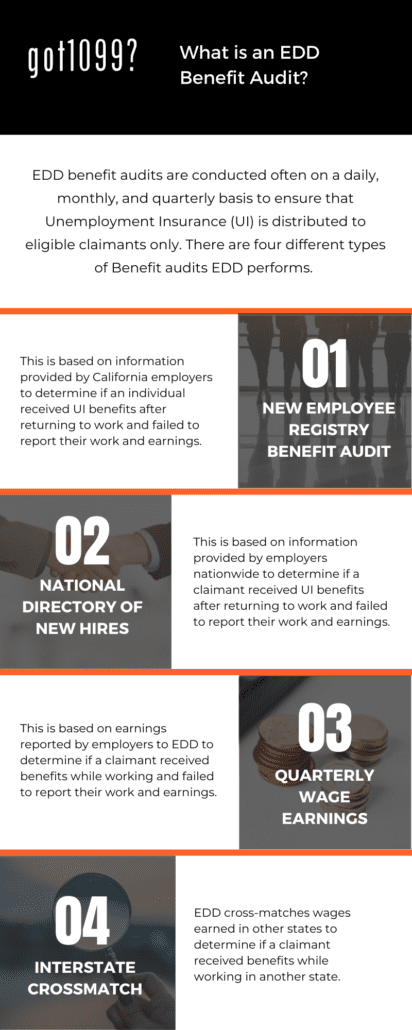If you’re a business based in California, you’ve likely had dealings with the Employment Development Department (EDD). It is the responsibility of EDD to collect payroll taxes and conduct payroll tax audits of companies and businesses. In addition, EDD performs what’s called Unemployment Insurance (UI) benefit audits. The federal-state unemployment insurance system (UI) helps people who have lost their jobs by giving them temporary wage replacement. The purpose of the government benefit audits is to protect the integrity of the UI program.
EDD audits also aid in lowering employee UI costs. New employees are assigned a 3.4% UI rate for two to three years of employment and fluctuate after that set time depending on your contribution to UI benefits. EDD can take from 1.5% to 6.2%, but the taxable wage limit caps at $7,000 per calendar year.
EDD benefit audits are conducted on a daily, monthly, and quarterly basis to ensure that Unemployment Insurance (UI) is distributed to eligible claimants only. They are done by matching the information provided by employers against information provided by individuals who have filed a UI claim. According to EDD, there are four types of benefit audits:
New Employee Registry Benefit Audit
This is based on information provided by California employers to determine if an individual received UI benefits after returning to work and failed to report their work and earnings. This is used for daily audits.
National Directory of New Hires
This is based on information provided by employers nationwide to determine if a claimant received UI benefits after returning to work and failed to report their work and earnings. This is used for weekly audits.
Quarterly Wage Earnings
This is based on earnings reported by employers to EDD to determine if a claimant received benefits while working and failed to report their work and earnings. This is used for the quarterly audits.
Interstate Crossmatch
Finally, EDD cross-matches wages earned in other states to determine if a claimant received benefits while working in another state. This is also done on a quarterly basis.
If EDD determines that an individual received benefits they should not have received, or if they were overpaid, then they will be assessed that amount along with any applicable penalties.
What to Do If You Receive a Benefit Audit
If you receive a benefit audit in the mail, it will arrive in a packet that includes more details about the audit, and specific instructions to fill out the paperwork. Generally, the form will be outlined as such:
- Purpose
- Information of requirements, employer liability, who to contact if you need assistance, and how to return the audit.
- Commonly asked questions
- Specific instructions
A few commonly asked questions and answers included on the form are:
Q: “What if my work week is different from the Benefit Audit’s benefit week?”
A: In order to perform a valid audit it is necessary to match earnings from work performed to the benefit weeks listed. Please use records showing dates worked (such as time cards) to adjust or calculate earnings.
Q: “What if the employee works on a seasonal or as-needed basis?”
A: Accurately report earnings (or no earnings) for the weeks listed on the audit. In item 3, provide any additional dates (laid off, recalled, or separation) related to the audit time period.”
All of the audits requested by EDD must be returned within 10 days of receiving them– unless you received an approved extension.
Completing the audit form helps the EDD determine if the correct payments were made to the claimant. If incorrect payments were made, a credit can be given to an employer’s account.
See the sample below:

To assure your company is not being harmed or assigned penalties, make sure to complete the audit form as accurately and completely as possible. Incorrect filing of benefits is one of many issues that can come up in an EDD audit.
If you are already part of an EDD benefits audit, and it becomes clear that you have incorrectly classified your employees, a misclassification audit will commence on top of the benefits audit.
This opens your business up to more fines and penalties. Learn more about how a got1099 report can help protect business owners in the face of an EDD audit by reading our article here.

Original article published on Milikowsky Tax Law.
LOCATION
La Jolla, CA 92037
o: (888) got-1099 (468-1099)
e: contact@got1099.com
copyright got1099®
copyright got1099?®
copyright Start1099®
GET AB-5 And CASLB Updates in your inbox
IMPORTANT INFO
Disclaimer
got1099 is a business reporting company providing business analysis reports to companies re: their 1099 independent contractors We do not provide legal advice. Consult with your attorney relating to any legal issues.


